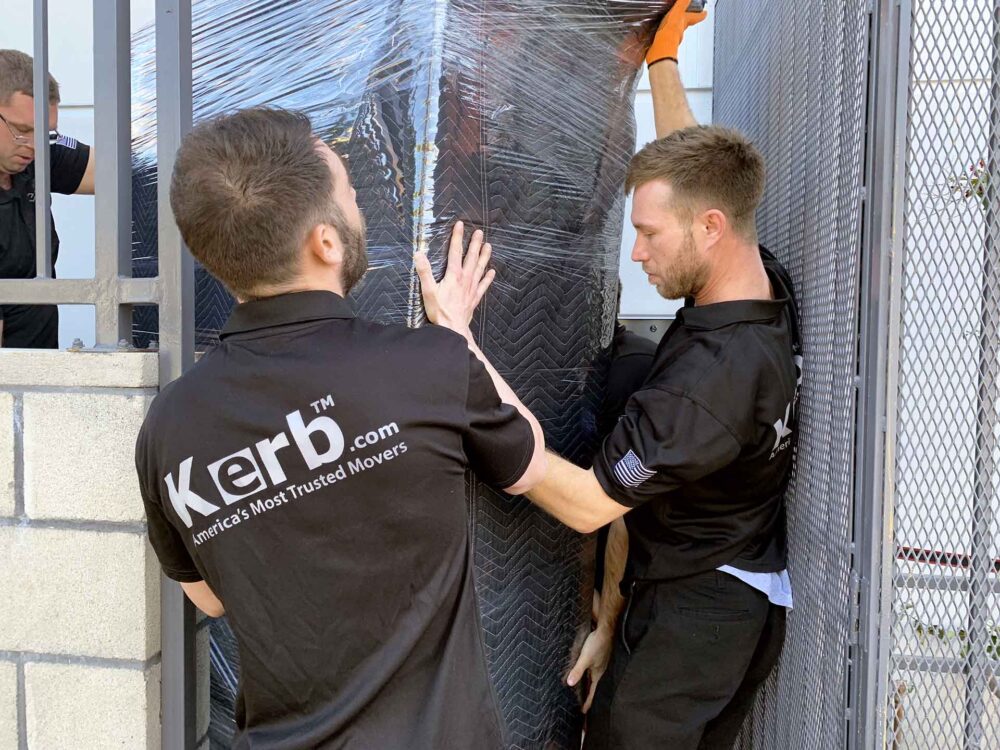Imagine having spent days or weeks packing your entire household and getting ready for your relocation, just to find out that you’re moving company won’t transport your nail polish remover or your favorite cactus. And that you have to take them out of the already sealed and labeled boxes. Sounds dreadful? That’s why you should get familiar with items movers won’t move on time and make this process less nerve-racking for yourself.

We’ve put together a list of items that professional movers don’t want, or aren’t allowed to transport in their trucks for whatever reason. Find out about the most common things that are forbidden long before you start putting things in boxes. Of course, this list varies from one company to another, but the fact is that the best ones share the same professional approach to this.
Why It’s Important to Know What Items Movers Won’t Move
With the day of the move fast approaching, there’s plenty to do. You need to think about packing supplies, create your inventory and moving to-do list, define your final relocation date, and make time to sort through and pack your stuff.
If this seems too overwhelming and requires a lot of your energy and time, you can always count on professional moving services, whether you’re moving locally or long-distance. And when it comes to packing, typically perceived as the most tedious part of the process, you should know that it can be a breeze if you entrust it to a highly capable team of experts.
But if you decided to do the packing part on your own, you need to sure about what you can put in boxes and how to do it safely, especially when it comes to chemicals and other hazardous materials. To help you organize the process better, let’s find out what things a professional crew will refuse to relocate.

First Things First – Hazardous Materials and Flammable Items
You shouldn’t expect from your mover to transport anything corrosive, flammable, or explosive. They couldn’t do it even if they wanted to, because these things are illegal to move. Here are some of the common or not-so-common objects any respectable relocation company will refuse to carry in its trailers for safety reasons:
- Weapons and ammunition
- Acids, ammonia
- Gasoline, kerosene
- Deodorants and hair sprays
- Pool chemicals
- Paints and stain
- Motor oil and antifreeze
- Car batteries
- Fireworks
- Cleaning supplies
- Bleach
- Nail polish and polish remover
- Lamp oil
Useful tip: relocating your yard equipment, for example, a lawnmower, can be risky if you don’t drain the gas from the tank before loading into the truck.
Why You Should Avoid Packing Hazardous Materials and Items Anyway
Fooling your relocation company by packing dangerous stuff is too risky. And here’s why:
- If something happens to your belongings during the move, neither your company nor moving insurance will cover the loss or damage
- If something unexpected happens, the only person that will be held accountable and liable for any damage is you
In case you’re not sure about how to best dispose of these things, you can call the Environmental Protection Agency office and ask for advice.

Perishable Foods
Although food is not as nearly as dangerous as hazardous materials, perishables can cause a lot of damage and make a huge mess. Rotten food releases unpleasant odors, can attract rats or insects, and grow mold. So, before the relocation, it’s better to avoid packing the following:
- Fresh foods
- Frozen foods
- Refrigerated foods
- Open cans of non-perishable food
Additional tip: If you’re moving across town or to a neighboring city, some movers may agree to transport food as long as you’ve packed it carefully.

Moving Your Valuables By Yourself Is the Best Choice
Apart from the dangerous materials and perishables, some irreplaceable belongings are also considered a sensitive category. These are so valuable that, in case of an accident, they can’t be restored or replaced, and movers know that. Here’s a quick list.
- Personal documents
- Cash
- Credit/debit cards
- Your home and car keys
- Collections and artworks
- Medicine
- Family heirlooms
- Jewelry
- Electronics

Leave Your Plants Behind
If you’re wondering what to do with your beloved lush vegetation in your living room, the answer is simple – get rid of it somehow. The truth is that carriers won’t move your plants either. There are several reasons for that:
- It’s forbidden to relocate plants on moves longer than 150 miles unless there is a special permit
- Your vegetation will almost certainly not survive relocation due to extremely high temperatures in the backs of trucks
- Plants are usually excellent parasite and pest transmitters, and they can bring them to a new state or city
Handy tips: If moving long-distance, gift your plants to someone, but in case of a local relocation, ask your movers whether they are willing to transport them. Of course, the most painless solution is to move your pots in your vehicle.

Moving Pets Is Not Allowed Either
It should go without saying that your favorite animal companion is not a thing, but a living being. In other words, you can’t place your dog, cat, or fish in a moving truck like it was your living room couch. Even if you wanted to, pets aren’t allowed to be moved inside a moving van. We’ll assume you can’t imagine a day in your new home without your furry, feather, or scaly friend, so let’s find out what your other options are in that case.
Use Your Own Car to Move Pets
Traveling in your vehicle will calm your pet down and provide a feeling of safety. Every move is stressful, and leaving home can cause additional anxiety. So, take your animal friend to a vet for a full check-up, and get it accustomed to the carrier before the trip.
Consider Air Travel
Each airline company has its own requirements for a specific animal breed. That’s why you should contact the airline of your choice and check if your pet is on the list of accepted animals.
Professional Pet Mover
Perhaps the most convenient solution both for you and your pet are companies that will transport your dog or cat professionally and safely. These companies specialize in pet transportation and will make your life easier if you can’t move your animal by yourself.

Be Ready Before Moving: Contact Your Movers
Since the list of things movers won’t move is not universal for all companies, to know what to pack and what to leave behind you, contact your moving company and get information about their terms and conditions. That’s how you will be able to get organized in time and without unexpected events when the relocation day arrives.
Request a Free Moving Quote and the List of Prohibited Items
You can always learn more about unwanted things by requesting a free quote. This way, you can check out your estimated moving price, and what’s more, get additional information about things that are illegal to move. This will make the whole process much more comfortable and help you avoid unexpected situations.





